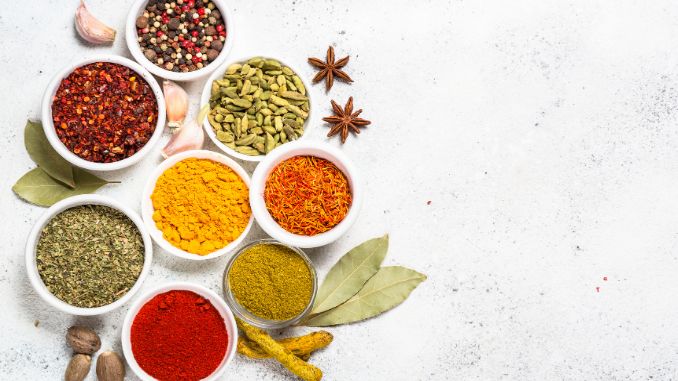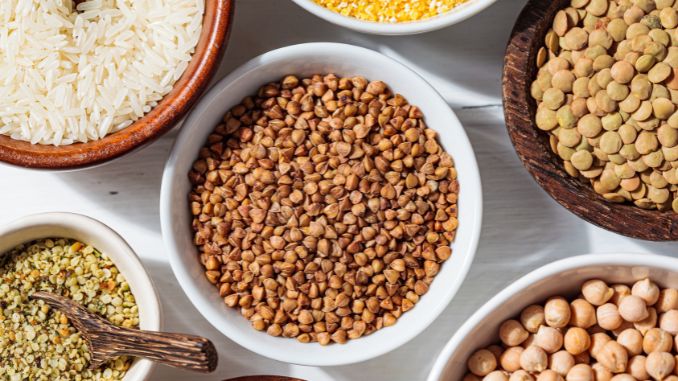Exploring the Surprising AIP Diet Side Effects: What You Need to Know

Last updated on April 11th, 2025 at 07:57 pm
Are you familiar with the AIP diet? It’s gaining popularity due to its potential health benefits, especially for those dealing with autoimmune conditions.
However, like any diet, the AIP diet has its own side effects that you should be aware of.
Moreover, the AIP diet mostly avoids foods that cause inflammation. But it might also cut out important nutrients without proper planning. Additionally, this could lead to not getting enough of what your body needs.
What is the AIP Diet?

The Autoimmune Protocol (AIP) diet, also known as the Autoimmune Paleo diet, is like a special version of the Paleo diet. Additionally, it's designed to help calm inflammation and ease symptoms in people with autoimmune disorders.
A big part of the AIP diet is cutting out gluten, but it removes other foods that might cause inflammation and affect the immune system, like grains, legumes, and dairy. Moreover, this diet aims to support gut health and reduce symptoms linked to autoimmune conditions like adrenal fatigue and leaky gut.
Furthermore, according to a study from the National Library of Medicine,[¹] they found that patients with active inflammatory bowel disease (IBD) experienced improvements in symptoms and quality of life after incorporating an AIP diet.
Foods to Include in AIP Diet
1. Vegetables:
-
- Spinach
- Kale
- Broccoli
- Cauliflower
- Carrots
- Sweet potatoes
- Beets
- Brussels sprouts
- Cabbage
- Zucchini
- Squash (e.g., butternut squash, acorn squash)
- Asparagus
- Bell peppers (excluding nightshades for some individuals)
- Celery
- Radishes
- Onions
- Garlic
- Leeks
- Mushrooms
- Green beans (in moderation, for some individuals)
2. Fruits:
-
- Apples
- Berries (e.g., blueberries, strawberries, raspberries)
- Pears
- Kiwi
- Papaya
- Mango
- Pineapple
3. Meat and Poultry:
-
- Grass-fed beef
- Pasture-raised chicken
- Pasture-raised turkey
- Lamb
- Bison
- Venison
- Rabbit
- Duck
- Goose
- Quail
4. Herbs and Spices:
-
- Turmeric
- Ginger
- Garlic
- Basil
- Parsley
- Cilantro
- Rosemary
- Thyme
- Oregano
- Sage
- Mint
- Dill
- Chives
- Coriander
- Bay leaves
Moreover, here are other foods you can incorporate in AIP diet:
- Organ meats: Liver and other organ meats can provide essential nutrients.
- Bone broth: Rich in nutrients that support gut health and reduce inflammation.
- Healthy fats: Avocado, coconut oil, olive oil, and fatty fish like salmon.
- Fermented foods: Moreover, sauerkraut, kimchi, and kombucha can support gut health.
- Coconut products: Coconut milk, coconut flour, and coconut aminos are often used as alternatives.
Foods Restricted in AIP Diet
In the autoimmune protocol (AIP) diet, certain foods are restricted to help reduce inflammation and alleviate symptoms associated with autoimmune conditions. Moreover, commonly restricted foods include:
- Grains: Wheat, barley, rye, oats, corn, rice, and any products made from these grains.
- Legumes: Beans, lentils, peanuts, soybeans, and chickpeas.
- Dairy: All dairy products, including milk, cheese, yogurt, and butter.
- Processed foods: Moreover, foods containing additives, preservatives, artificial flavors, and colors.
- Refined sugars: White sugar, high-fructose corn syrup, and other refined sweeteners.
- Nightshade vegetables: Tomatoes, potatoes, eggplants, peppers (bell peppers, chili peppers, etc.), and spices derived from peppers (e.g., paprika).
- Eggs: Some individuals may choose to eliminate eggs due to their potential to trigger autoimmune reactions.
- Nuts and seeds: Some individuals may choose to avoid nuts and seeds, particularly during the initial phases of the diet, due to their potential to irritate the gut lining and trigger inflammation.
- Certain oils: Vegetable oils (e.g., soybean oil, corn oil, sunflower oil) and seed oils high in omega-6 fatty acids may be restricted, while oils rich in omega-3 fatty acids, such as olive oil and coconut oil, are typically allowed.
The Surprising Benefits of the AIP diet

A study conducted by Chandrasekaran [²] et al, titled “An Autoimmune Protocol Diet Improves Patient-Reported Quality of Life in Inflammatory Bowel Disease,” it has been found that an autoimmune protocol diet can significantly enhance the quality of life for patients suffering from inflammatory bowel disease.
1. Reduced Inflammation: The AIP diet helps calm body inflammation by removing potentially inflammatory foods and incorporating nutrient-dense alternatives. This can alleviate symptoms linked to autoimmune diseases, such as joint pain, fatigue, skin problems, and digestive issues.
2. Improved Gut Health: By eliminating potential irritants, the AIP diet supports a healthier gut, crucial for overall immune function, improved digestion, nutrient absorption, and increased energy levels. Moreover, it focuses on restoring the balance of gut bacteria, promoting a healthier gastrointestinal system.
3. Better Digestion: Removing certain foods from your diet with the AIP plan might help make digestion easier and more comfortable.
4. Potential Symptom Relief: The AIP diet can reduce symptoms linked to autoimmune diseases, helping also some people feel better by avoiding specific foods that trigger their conditions.
5. Identification of Triggers: Following the AIP diet can help you discover which foods cause negative reactions, making it easier to avoid them and stay healthy.
6. Encourages Whole Foods: The AIP diet focuses on natural foods rich in nutrients, which promotes overall health by ensuring your body gets what it needs.
7. Possible Weight Management: Choosing healthier foods with the AIP diet might help some people lose weight as they are generally lower in calories but high in nutrients.
8. Balanced Blood Sugar: The AIP diet helps keep your blood sugar levels stable by encouraging you to eat whole foods that prevent spikes and drops.
Here are the Real-Life Experiences of People Who Tried the AIP Diet
They share their journey, including the ups and downs, and how it made a difference in their health and daily life.
Moreover, explore these stories to see how the AIP diet brought positive changes, offering a new beginning and improved well-being.
“My wife has Hashimoto’s and was vegetarian for many years.” Additionally, we’ve been working over the last year when we went vegan to try and figure out how she should eat to feel as well as possible while cutting out everything animal-based. Also, I can say that she never could make it on the AIP. Even also before her vegetarianism she couldn’t stomach much meat.
Additionally, I will say that she does do better being gluten-free. The inflammation it causes results in short-term gastrointestinal distress for her but also causes the thyroid and everything else to go wild.
Moreover, other grains and legumes in moderation have been fine for her, nightshades have also been fine for her but on the other hand she reacts poorly to sweet potatoes. Just below the threshold for a true allergy. So do some testing and experimentation (which I understand sucks) to see what might be better or worse for you specifically.
Furthermore, if you can afford it I would look into hemp seed protein supplementation and things like quinoa, chia or amaranth for protein.
Here's another success story from people who tried AIP diet, “I tried it and yes, it helped! I grew back my eyebrows and eyelashes on one eye during the process“. Moreover, no significant regrowth on my head, though. I was also on a bunch of supplements during the protocol as well.
Exploring the Potential Side Effects of the AIP Diet
While the Autoimmune Protocol (AIP) diet is praised for its potential health benefits, it’s important to be aware of potential side effects and challenges associated with this eating plan.
Moreover, here are some common AIP diet side effects.
1. Nutrient Deficiencies: Eliminating certain food groups like grains, dairy, and nightshades may lead to insufficient intake of essential nutrients, potentially causing deficiencies if not compensated through careful planning or supplements.
2. Social Isolation: Moreover, adhering to the AIP diet, which involves avoiding many common ingredients, can make social situations challenging. Additionally, dining out or attending gatherings may become more complex, potentially leading to feelings of isolation.
3. Initial Discomfort: As your body adjusts to the AIP diet, you may experience initial discomfort such as digestive changes or detox-like symptoms. These are often temporary but can be unsettling.
4. Strict Dietary Requirements: Moreover, the AIP diet demands strict adherence to its guidelines, which can be difficult for some individuals to maintain consistently. Additionally, this may lead to frustration or feelings of deprivation.
5. Time-Consuming Meal Preparation: Moreover, planning and preparing AIP-compliant meals can be time-consuming, requiring careful consideration of ingredients and cooking methods. Additionally, this may be challenging for individuals with bus schedules.
6. Limited Food Choices: The restrictive nature of the AIP diet may result in a limited variety of food choices, potentially leading to boredom and difficulty in achieving a well-balanced diet.
7. Emotional Impact: Coping with the challenges of the AIP diet, especially in social settings, may have emotional implications. Moreover, it’s important to consider the potential impact on well-being.
Moreover, here are some stories and testimonials of people who tried the AIP Diet
- “I followed this diet for Crohn’s disease and it did not make a difference.” N.J
- “Don’t torture yourself. I did AIP for 9 months and couldn’t walk up a single flight of stairs.” Additionally, I tortured myself and blamed myself for everything. AIP does not work. Also, the only thing that helped me was medication.” – JB
Tips on How to Manage AIP Diet Side Effects

- Keep a Food Journal
- Experiment with AIP-friendly Recipes
- Moreover, Focus on Whole, Unprocessed Foods
- Stay Hydrated
- Practice Mindful Eating
- Additionally, Listen to Your Body's Signals
- Get Plenty of Rest and Manage Stress
- Incorporate Gentle Exercise
- Consider Supplements as Needed
- Stay Informed and Keep Learning about AIP
Conclusion: Weighing the Pros and Cons of the AIP diet
The Autoimmune Protocol (AIP) diet is recognized for its potential to combat inflammation in the body, also offering relief for individuals with autoimmune conditions by alleviating symptoms. While it can be helpful, it's important to be careful. Additionally, some people might feel side effects from cutting out certain foods. But the benefits are big enough for others to make it worth it.
Furthermore, talking with a healthcare professional before starting is a good idea. Additionally, they can help you figure out if the diet is right for you and how to manage any side effects. Moreover, if you do try it, experimenting with different AIP-friendly recipes can make meals more interesting. Plus, having supportive friends to talk to about your AIP journey can make a big difference.
Curious about the AIP diet? Discover surprising side effects and make an informed choice. Plus, get our Best Foods that Rapidly Slim & Heal in 7 Days for a quick health boost.
Frequently Asked Questions
How do I know if my AIP diet is working?
-
- Feeling better with fewer symptoms like pain or digestive issues
-
- Increased energy levels
-
- Improved sleep quality
-
- Clearer thinking
-
- Monitoring changes in autoimmune or inflammatory conditions, weight, skin, and mood
-
- Continuing with the diet as long as improvements are seen and the body responds well
How long should you stay on an AIP diet?
The Autoimmune Protocol (AIP) diet usually lasts around 30 to 90 days, during which trigger foods are eliminated to allow the body to heal. After this phase, foods are reintroduced gradually. Depending on individual responses, some may see improvements within a few months, while others might need longer.
Note: Consulting with healthcare professionals helps determine the best duration for your health goals.
Can you eat rice on an AIP diet?
The AIP diet initially excludes grains like rice to reduce inflammation and support healing. Some may reintroduce rice later to see how their body responds.
Is coffee allowed on an AIP diet?
Coffee is usually avoided during the initial phase of the Autoimmune Protocol (AIP) diet. It is excluded due to potential links to inflammation and autoimmune responses. After the strict elimination phase, some people reintroduce coffee to see how their body reacts. Individual responses vary, so it's essential to pay attention to any symptoms or discomfort. If tolerated well, some may include coffee in moderation.
Rick Kaselj MS, is a leading kinesiologist and injury specialist as well as co-creator of the best-selling Unlock Your Hip Flexors program. Rick creates exercise programs that help people heal injuries and eliminate pain, so they can go back to living a full, active, healthy life.

















